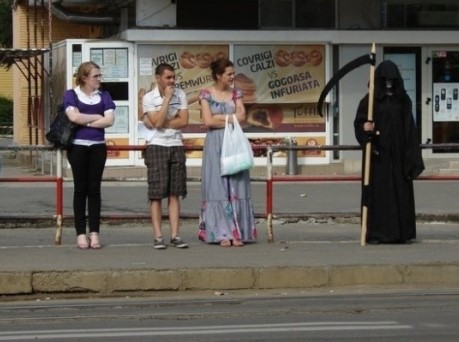People often ask me, “What made you stop using?”
“What finally drove you into recovery?”
They hear my story, and of course there are plenty of reasons to stop abusing drugs.
“If I ended up in the hospital because of drugs, I would stop using too.”
“If I got fired from my job, I would go to detox too.”
“If I were homeless, I would stop using too.”
“If I stole from my family, I would know I had a problem too.”
The truth is, I was standing at a bus stop on a disgustingly hot day in Suffolk County, Long Island, contemplating my next trip to a detox, and how my life came to the point where I would need to shamefully beg for two dollars to ride the bus to the homeless shelter.
I’ve had bottoms before.
Every day in active addiction was a bottom that was deeper than the bottom from the previous day.
Often, I would have a little bit of hope in the back of my mind that one day I would stop all of this and make some kind of life for myself, but this wasn’t it. But on that particularly hot day in July of 2016, I no longer looked to the possibility of a fruitful future. In this version of the future, it was an abyss—bottomless.
I had no more bottoms left.
This was hopelessness.
Hopelessness is not homelessness. It’s not joblessness. It’s not stealing. It’s not choosing which bloodstained shirt to wear because you have no clean clothes. Hopelessness is a feeling. Hopelessness is not being able to look anyone in the eye because they might see what you’ve become. Hopelessness is a combination of guilt, shame, anger, and sadness built up over years of using and mental exhaustion – that is active addiction, balled up into one feeling of emptiness that leaves you paralyzed. Ironically, hopelessness also gives us a starting point when we can no longer go on. When I entered detox, long-term recovery was not my intention. I couldn’t look that far past the abyss of the future. I was thankful just to have a safe place to sleep. I was grateful for each step in the right direction, no matter how small. Believing in myself came much later in my recovery.
Now I look back on my hopeless moment and I am grateful that I can remember that feeling. I now call it my moment of clarity and the beginning of my road to redemption.
My isolation turned into identification.
My anger turned to understanding.
My hopeless turned hopeful, addiction to recovery.
I am a recovering heroin addict (4 yrs. 7 mo.)
- Sigmund Freud’s Cigar

